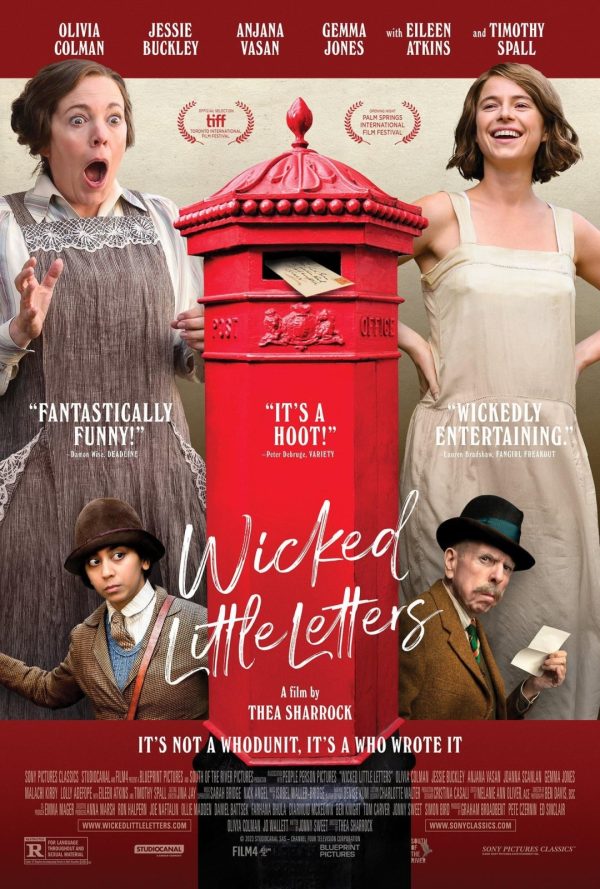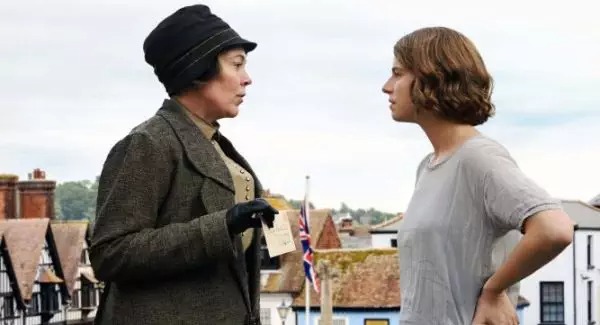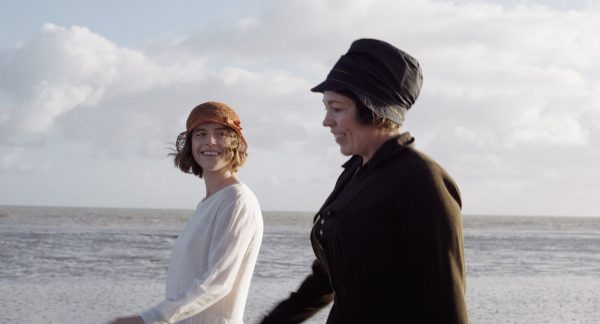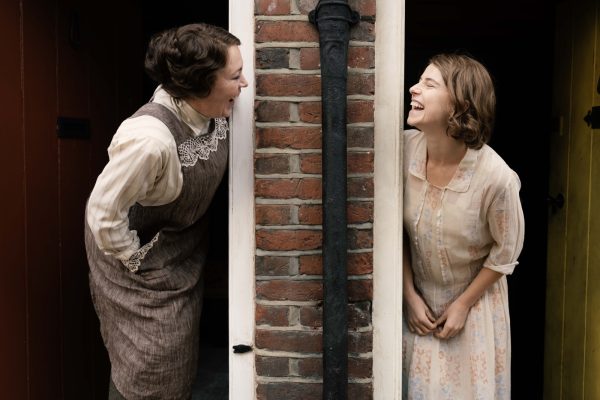Wicked Little Letters, 2023.
Directed by Thea Sharrock.
Starring Olivia Colman, Jesse Buckley, Anjana Vasan, Joanna Scanlan, Gemma Jones, Timothy Spall, Malachi Kirby, and Eileen Atkins.
SYNOPSIS:
When people in 1920’s Littlehampton begin to receive letters full of profanities, Irish migrant Rose is charged with the crime. Suspecting that something is amiss, the town’s women investigate.
Based on real-life events that scandalised 1920s England, Thea Sharrock’s dark comedy has playful fun with mysterious poison pen letters and a whole lot of swearing.
When the residents of the middle-class coastal town of Littlehampton begin to receive obscene anonymous letters, panic starts to spread. The police are at a loss for leads, and showing off the prejudices of the time, suspect free-spirited Irish single mother Rose (Jessie Buckley) of being responsible.
A one-time friend and neighbour, Edith (Olivia Colman) is particularly suspicious of Rose, citing her love of music and socialising as total evidence of her guilt. Edith still lives with her parents (Timothy Spall and Gemma Jones) and has a very different lifestyle from Rose. Despite being next door neighbours, the two women’s lives could hardly be more different.
As the typically bungling police force fail to make any headway, Rose’s situation looks more and more perilous. However, help comes in the form of WPC Gladys (Anjan Vasan) who has a feeling that Rose may not be the guilty party. She attempts to take on the case in a clear-sighted and methodical fashion but is blockaded by her sexist police colleagues.
This was 1920s England, and the inklings of a woman police officer – the W very much underlined – were not noted as being worthy of investigation. Gladys then enlists local women to try and find any evidence at all for who might be sending the nasty letters. Vasan is great in the role of Gladys and is assured in her telling of the lone WPC’s mission for justice. Coleman and Buckley are also excellent in their comedic performances.
Despite this, I found the film’s main problem is one of tone. Johnny Sweet’s patchy script touches on some seriously dark elements with addresses to the state of 1920s patriarchy sitting uncomfortably with almost panto-like tomfoolery. It’s a laugh in many places, but when the scene switches to domestic abuse and the motivation of women’s suffrage, the film looks less sure of itself.
Many of Timothy Spall’s scenes as Edith’s pious bully father are erratically handled, and it is not entirely clear what the film was going for with them. Is the audience supposed to be scared of him, or laughing at him? It comes out as a jumbled mess of ideas, which was probably not the desired effect.
There is some sense of a country moving forward away from the prejudices of the past, but it is a diluted vision. Best enjoyed as a raucous comedy with inventive swearing, the film doesn’t quite get serious enough or committed enough with the dramatic moments.
Flickering Myth Rating – Film: ★ ★ / Movie: ★ ★ ★
Robert W Monk














